English Words in Action, Group I
(a variety of English words which have developed through history and are currently used in our modern age)
Simply click on this banner (or the following link) and you will be on your way to stimulate your brain for greater word comprehension with quizzes based on some of the words in this unit.
2. The destruction of religious images used in worship, or opposition to their use in religious services: It is obvious that the person who broke into the church was bent on iconoclasm, destroying the symbols of the religion which he or she was convinced were spiritually wrong.
2. Etymology: "an image-breaker" which comes from Greek eikon, "image" + klastes, "breaker".
Iconoclasm, "image-breaking", was originally a policy of the Byzantine emperor Leo the Isaurian, who in A.D. 726, would not allow religious statues, icons, and other pictures, as well as candles, crosses, and holy medals to exist; on the theory that these "images" were the main hindrance to the conversion of Jews and Muslims.
2. Reserved or hostile in behavior: An icy reception greeted the late arrivals at the meeting.
3. Unfriendly, frigid, cold: Janine gave Benjamin an icy stare when he spilled the soup on the table during dinner.
2. An inkling, suggestion, or hint of something: Marvin needs some idea of what the cost will be for the new vacuum cleaner.
3. A proposal, a plan, or a recommendation: The council approved of the commissioner's idea for improving the roads.
4. Intention, purpose, private view, or thought: It's Haley's idea that a vacation means having a good time with sun, sand, and the ocean.
5. Etymology: from Greek ideein, "to see".
2. Descriptive of a very peaceful, happy, and enjoyable situation: Joyce and her children were having an idyllic summer day at the local swimming pool.
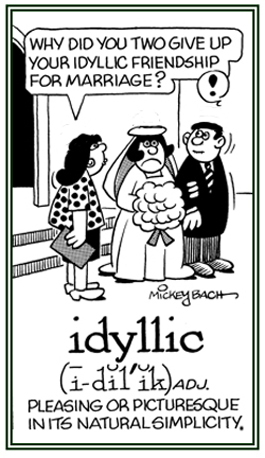
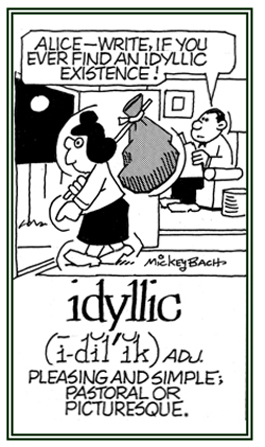
Go to this Word A Day Revisited Index
so you can see more of Mickey Bach's cartoons.
2. A kind or sort of person, family, group, or thing, often with negative or unsavory reputations: Because of their past behavior, Acey Smith and his ilk are no longer welcome in this family vacation resort.
3. Etymology: When a person uses ilk, as in the phrase "people of his ilk", then he or she is using a word with an ancient application even though the sense of ilk, "kind or sort", is actually quite recent, having been first recorded at the end of the 18th century.
This meaning grew out of an older use of ilk in the phrase "of that ilk", meaning "of the same place, territorial designation, or name".
This phrase was used primarily in names of landed families, Smith of that ilk meaning "Smith of Smith".
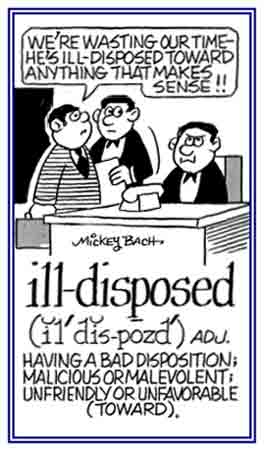
Go to this Word A Day Revisited Index
so you can see more of Mickey Bach's cartoons.
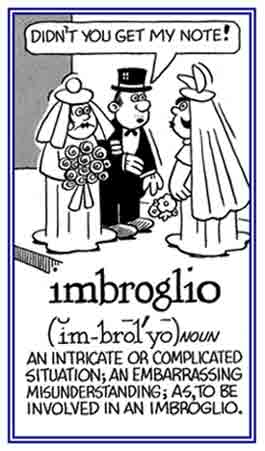
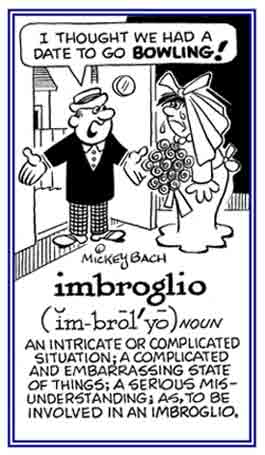
Go to this Word A Day Revisited Index
so you can see more of Mickey Bach's cartoons.
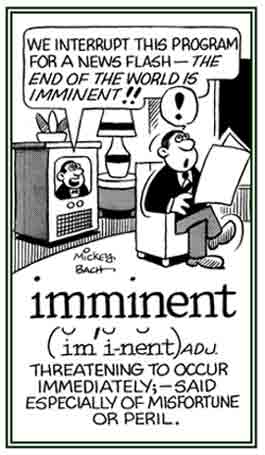
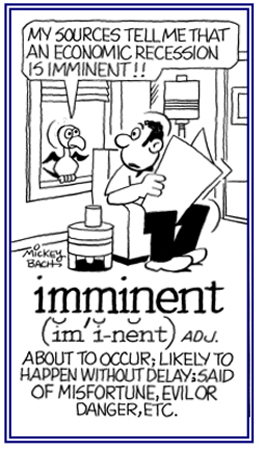
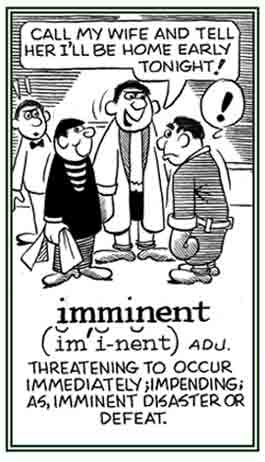
Go to this Word A Day Revisited Index
so you can see more of Mickey Bach's cartoons.
2. An individual typically thought of as a child, who plays tricks and who is generally harmless and somewhat naughty: The little imp has hidden the TV schedule from his father again.
Many school teachers have to deal with imps in their classes.
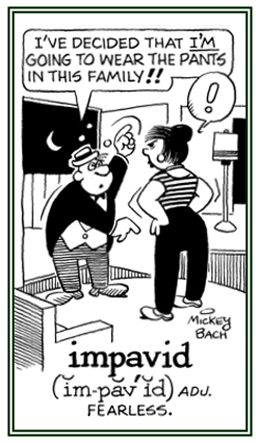
Go to this Word A Day Revisited Index
so you can see more of Mickey Bach's cartoons.
Janine, the impish girl, was constantly teasing her younger brother.
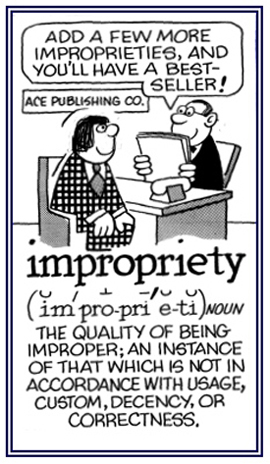
Go to this Word A Day Revisited Index
so you can see more of Mickey Bach's cartoons.
2. Etymology: from Latin inclemens, from in, "not" and clemens, "mild".
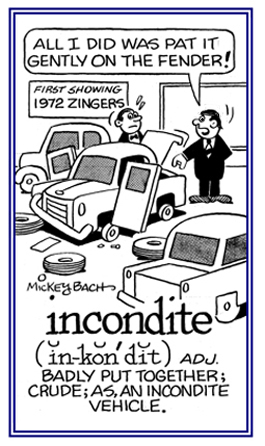
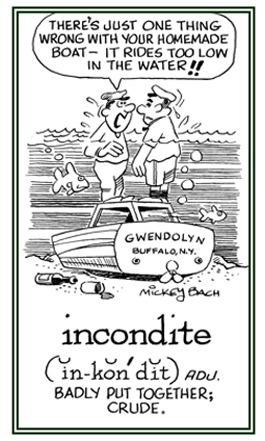
Go to this Word A Day Revisited Index
so you can see more of Mickey Bach's cartoons.
Links to all of the groups of English words in action, Groups A to Z.
You may see the bibliographic list of sources of information for these words in action.

